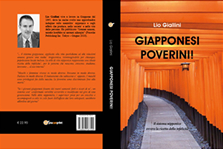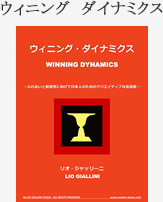The dispute over the SENKAKU Islands, a case aggravated mostly by the mentality of insiders.
At present, there should be no dispute; the Senkaku Islands are administered by Japan. Historically, those islands are claimed also by the P. R. of China (they call them Diaoyu) and by Taiwan. That is why the Japanese side had no interest in re-opening controversies, over this matter.
On September 7, 2010 the ship of a Chinese fisherman, in waters off the Senkaku Islands (East China Sea) had a collision with a Japan Coast Guard vessel and, the following day, the skipper Zhan Qixiong was arrested, for violating the territorial sovereignty of Japan.
Thinking outside the Japanese box, there was a perfect solution to this unfortunate event. The Japanese authorities, after a quick evaluation of the situation, could have released the Chinese citizen, as a sign of good will and good intentions towards China, sending at the same time, an official protest to the proper international institutions and to the Chinese government.
But, instead of treating the issue as a diplomatic problem which requires diplomatic solutions, the Japanese authorities left justice doing its course. The Prosecutor’s Office in Okinawa had no other choice but keeping the Chinese captain in jail.
The confrontation with China started slowly. There was plenty of time to close the case, in few days. Why it didn’t happen?
In the world, no political leader can afford to look soft on crime. In Japan they cannot look soft on controversial issues with China. Chinese politicians face the same situation. Both sides are under pressure by insiders.
In this case, we consider insider a person with a particular frame of mind, who is a member of a specific society.
Insiders feel confident about a huge range of issues. They were born in the best country in the world. They live among the best possible people and they feel blessed by the best culture on earth. Their country should come first in every dispute, because they are right and those on the other side are wrong, with no exceptions.
Everywhere in the world, insiders don’t care about what happens next. They are not interested in other people opinions. Usually, they don’t worry too much about the consequences of their actions.
The Japanese insiders are pretty much like that. They feel entitled to do whatever they want, as long as they are in line with the Japanese views, moving according to the Japanese mentality and acting by the Japanese law.
The Japanese insiders are not bad people. When they organize a protest in public, they do not cause damages to private or public properties.
Generally speaking they are good people, they love their country and they always strongly believe that their point of view should prevail.
Outside of the Japanese borders, in China, there are other insiders. They are Chinese insiders. They feel exactly the same and they too, strongly believe that their point of view should prevail.
There is no place on earth, in which politicians can avoid taking into account the positions of insiders, if indeed they aim to be re-elected or if they want to keep their job.
For that reason, political tensions between China and Japan have been growing since Mr. Zhan Qixiong was arrested.
From the middle of September 2010 on, more serious retaliatory measures were implemented by the Chinese government. China canceled bilateral negotiations with Japan, over airline flights. Then, they stopped the shipments of rare earths to Japan.
When, finally, on September 23rd the Chinese captain was released from prison, large groups of Japanese protestors made their voice heard, in public.
Most of them wanted a harder course of action. They saw this development as “a diplomatic defeat”. Now the Chinese citizen was a free man again, but those political tensions were still growing.
In China, protestors have been burning Japanese flags, destroying Japanese restaurants, shops and cars for weeks.
Obviously, the dispute over the Senkaku Islands cannot be solved following ideas and suggestions made by the insiders of the two countries.
A different approach is necessary.
Real diplomacy asks for flexibility, the capability to listen to the other side, the will to carrying on, despite of what is popular or not. It requires also understanding, openness of mind, compromising, international orientation, the need to take into consideration the strategic interests of the country, for the future of the youngest generations and much more than that.
It cannot depend on the insiders’ perception.
They do not understand the perceptions of the other side. They evaluate any event only inside an “us Vs them” or a “win Vs loose” frame and nothing is going to change their mind.
Insiders have the capability to transform any ordinary diplomatic dispute, into something bigger and almost out of control.
Lio Giallini
リオ・ジャッリーニ





